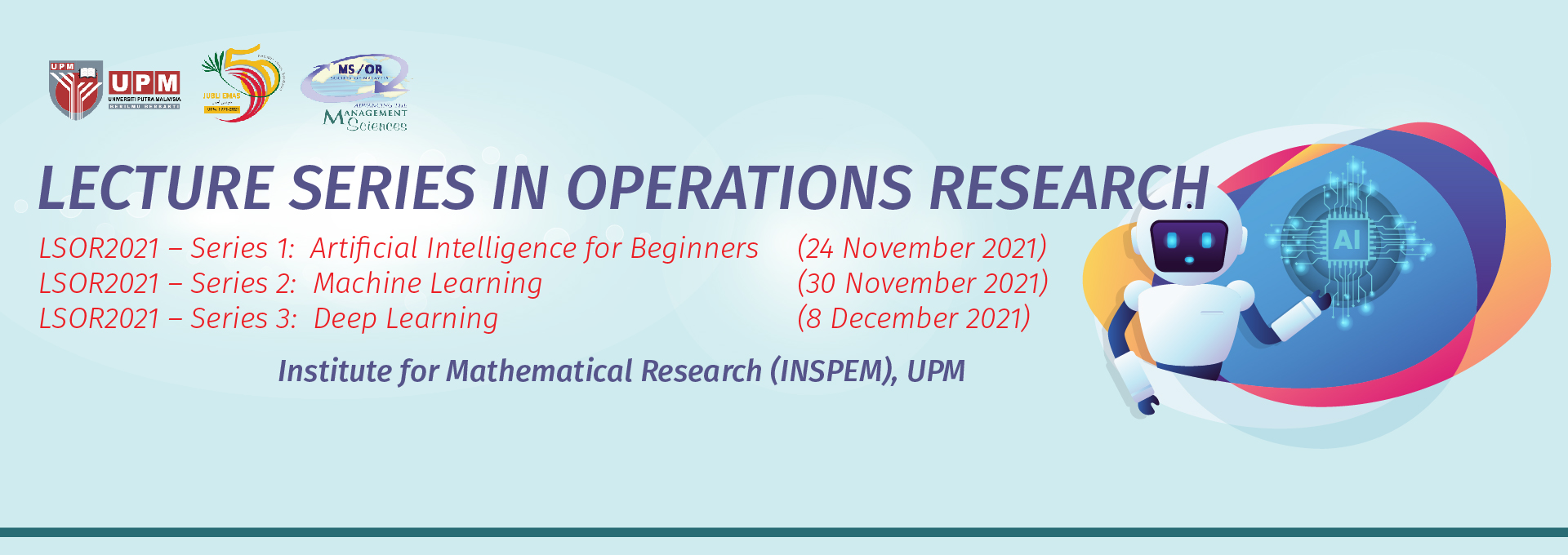
To learn more about the series, please click on the titles below for more information
LSOR2020 – Series 1: Artificial Intelligence for Beginners
(9 June 2021, Wednesday)
This series is designed to help learners decode the mystery of Artificial Intelligence (AI) and its applications. This AI for beginners course provides an overview of AI concepts and workflows, machine learning and deep learning, and performance metrics. The fundamental concepts of machine learning will be explained. In addition, the participants will learn the fundamental of machine learning using R and Python programming.
Topics covered:
- What is AI? Application and examples of AI
- What is Machine Learning and Deep Learning?
- AI: issues, concerns and ethical consideration.
- Future of AI.
- Machine Learning, Supervised Learning, Unsupervised Learning and Semi-supervised Learning.
- Linear Regression and Logistic Regression (cost function and gradient descent).
LSOR2020 – Series 2: Machine Learning (16 June 2021, Wednesday)
Explore the concepts of Machine Learning and understand how it’s transforming the digital world. An exciting branch of Artificial Intelligence, this series will provide the skills you need to become a Machine Learning Engineer and unlock the power of this emerging field. This Series will cover most of the key Machine Learning techniques using R and Python programming.
Topics covered:
- Decision Tree classifier
- Random Forest classifier
- KNN classifier
- SVM classifier
- KNN regression
- Regularization
- Clustering
- Dimensionality Reduction
LSOR2020 – Series 3: Deep Learning (23 June 2021, Wednesday)
This Series explains the fundamental principles of Neural Network and Deep Learning. Deep learning is a new superpower that will let you build Artificial Intelligence systems that were just not possible a few years ago. Rather than deep learning being a black-box technique, we will understand what drives performance, and be able to be more systematically in getting good results. This series will provide insight into how to use Keras for deep learning using R and Python programming. Keras is a popular high-level programming framework that simplifies the process of building deep learning applications.
Topics covered:
Joinly Organised by: INSPEM & MSORSM
©2021. Institute for Mathematical Research (INSPEM), UPM